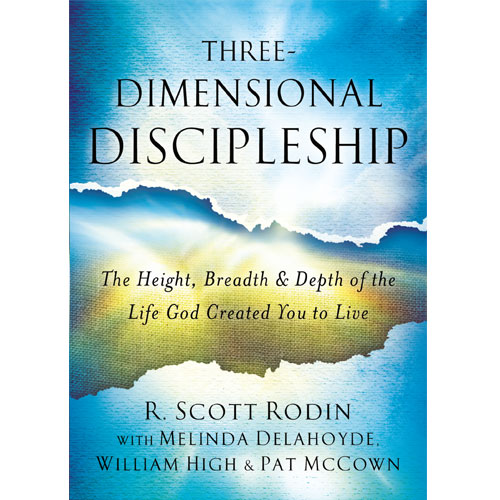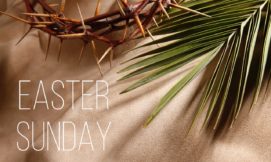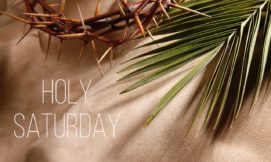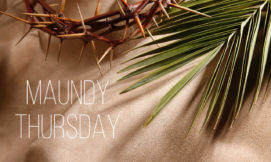We Say, ‘God is in Control,’ So Why Doesn’t It Help?
“If my life is surrendered to God, all is well. Let me not grab it back, as though it were in peril in His hand but would be safer in mine!”
Elisabeth Elliot

The other day I was trying to encourage a fellow believer who was overcome by concern over the current health crisis. I ended my comments by looking him in the eye and saying, “despite all we’re hearing and seeing, let’s always remember that God is ultimately and completely in control.” His reaction surprised me. He shrugged his shoulders, look down and with a deep sigh said, “Yes, I’m sure He is.” My friend’s affirmation of God’s control over the situation brought him no increased sense of peace or confidence whatsoever.
Perhaps you’ve felt somewhat the same way.
Why is it that we can say in the midst of a crisis like this that ‘God is in control’, and yet not have it overwhelm our spirit with a sense of His peace?
I would suggest that this is an owner vs. steward issue. The desire to be in control of our life is the deception the enemy uses to put us in bondage. The illusion of control drives us, yet the truth is, we are never in control, certainly not to the extent we think we are. It’s moments like the COVID-19 crisis that brutally remind us of this simple, yet profound truth. Owners need control, stewards are set free to surrender that desire back to God. Where are you on this continuum?
If the promise of God’s control falls somewhat flat in your spirit, let me suggest three reasons why that might be the case.
- We tie our control to our security and that doesn’t transfer to God. The reason we love control so much is that we believe that through it we find the security we want in life. This is part of the grand deception. If only I had enough money, I could be secure. If I take good care of myself and eat right, I will always be healthy. If I have enough power and influence at my job, I’ll always be employed. If I can control the decisions my kids make, they’ll turn out great. If I can get from my spouse what I need, I’ll have a happy marriage. And the list goes on. In the face of the current crisis, how foolish do most of these appear? We have stored up treasures on earth and put our security in them, only to see the market crashing and perhaps our life savings evaporating. We put our trust in our job only to face layoffs and business closures. We’ve sought to control our health only to realize that every single one of us are vulnerable to this disease. And here’s the most nefarious part of this deception. When we attempt to shift our desire for control to a real trust in God, too often our sense of security doesn’t transfer with it. By that I mean we may begin to find some sense of comfort in the idea that God is in control even of the impact of our economy. But do we then find as much if not more security in that affirmation than we did when our 401(k) was full or our savings account abundant? We can say God is in control of our employment, but do we have as much security in that belief as we did a few weeks ago when we went to work at what we thought was a safe position? And for our health, we can say that we trust God to be in control of it, but will that hold up, will that security still be there deep in our spirit if we find ourselves with a positive diagnosis? Here more than anywhere we must embrace the mantle of the steward, surrendering everything back to God, including our false notion of control. Even more importantly, we must surrender the caustic belief that control brings security. Will you today not only surrender control of all of your life back to Him, but also ask him to instill in you a deep sense of security knowing it is better in His hands than in yours?
- God’s sovereignty should not include our suffering. Perhaps a second reason we are not comforted by the idea that God is in control has to do with the misnomer that under God’s sovereign rule we will not suffer. Of course, Scripture tells us exactly the opposite. God uses suffering in powerful ways in our life, both individually and as a body of Christ. You cannot read scripture without seeing that theme woven throughout its entirety. In fact, you could go so far as to say that to embrace the idea that God is fully in control means embracing the trials and suffering that will come as a result. Not because God likes to see us suffer, but because He uses it in such a powerful way. It would be safe to say that none of us can achieve the fullness of the maturity of the faith to which God calls us without suffering. We will find deep peace and comfort in the affirmation of His control of all things only when we look with the eyes of a steward, when we lay our life before Him and allow suffering to be to us a refiner’s fire. Will you embrace the steward’s approach even in the midst of suffering? Will you affirm suffering as God’s tool to help conform you more to His image?
- We’re not sure that God’s being in control is better for us than if we were. This may be the most honest and damning reason we find no peace in acknowledging God‘s control. When it comes right down to it, we believe our life would be better if we were in control then if God was. None of us would say this out right, most of us would be scared to even think it. But check your spirit and see if there is not lingering in there somewhere this sense of resignation. When we think about surrendering everything to God, it’s as though we were saying, “life would be great if I were in control, but I know I’m supposed to turn it over to God.” So, with a sigh and a somewhat downgraded set of expectations, we surrender ourselves to Him. How ridiculous, how offensive to God! This is the God who promised He would do in us more than we would ever dare to ask or even dream of. This is the God who loves us and wants all things to work together for good. This is our loving father who sent His son to die for us and fills us with His spirit that we may know His freedom and joy every day. Yet how often do we place our lives into this God’s hands with feeble expectations and meager hopes? This is the true heart of the owner, the arrogance to believe that if we could just hold on to control in our life, we could steer it in the direction that would be for our greater good.
It’s time for us to embrace the mantle of the faithful steward. To proclaim that everything and all of our life belongs to Him, and believe this to be the most joyous, triumphant and victorious statement we will ever make. It’s time to take God’s promises seriously, to place our lives in the hands of the Father who so loved the world that He gave his only begotten son for us. It’s time for us to embrace the loss of control all around us and see it as our great emancipation.
What if we all emerged from this crisis having been set free in a brand-new way? What if we refused to go back to our ownership, second kingdom building ways because we found a fresh expression of freedom in being one-kingdom stewards in the midst of this crisis? What if, having had all control ripped away from us, we chose with joy not to take it back once the crisis passed?
This is our opportunity, to embrace this moment as stewards, reject the notion of ownership and control, break the chains the enemy has put us in and be ready to be transformed into the new creation in and through this current chaos.
God is in control! Amen and Amen!





